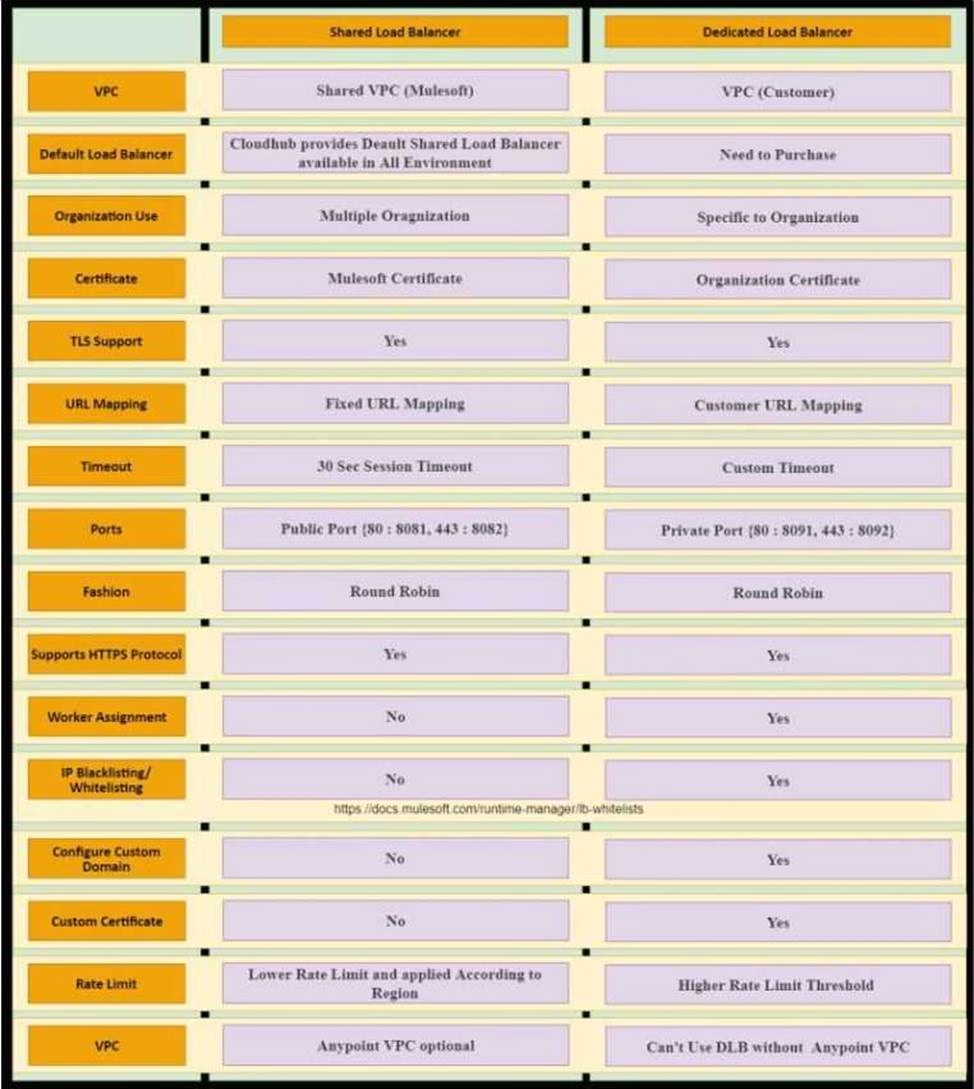What type of restrictions exist on the types of certificates for the service that can be exposed by the CloudHub Shared Load Balancer (SLB) to external web clients over the public internet?
An organization is evaluating using the CloudHub shared Load Balancer (SLB) vs creating a CloudHub dedicated load balancer (DLB). They are evaluating how this choice affects the various types of certificates used by CloudHub deployed Mule applications, including MuleSoft-provided, customer-provided, or Mule application-provided certificates.
What type of restrictions exist on the types of certificates for the service that can be exposed by the CloudHub Shared Load Balancer (SLB) to external web clients over the public internet?
A . Underlying Mule applications need to implement own certificates
B . Only MuleSoft provided certificates can be used for server side certificate
C . Only self signed certificates can be used
D . All certificates which can be used in shared load balancer need to get approved by raising support ticket
Answer: B
Explanation:
Correct answer is Only MuleSoft provided certificates can be used for server side certificate
* The CloudHub Shared Load Balancer terminates TLS connections and uses its own server-side certificate.
* You would need to use dedicated load balancer which can enable you to define SSL configurations to provide custom certificates and optionally enforce two-way SSL client authentication.
* To use a dedicated load balancer in your environment, you must first create an Anypoint VPC. Because you can associate multiple environments with the same Anypoint VPC, you can use the same dedicated load balancer for your different environments.
Additional Info on SLB Vs DLB:

Latest MuleSoft Integration Architect I Dumps Valid Version with 244 Q&As
Latest And Valid Q&A | Instant Download | Once Fail, Full Refund

